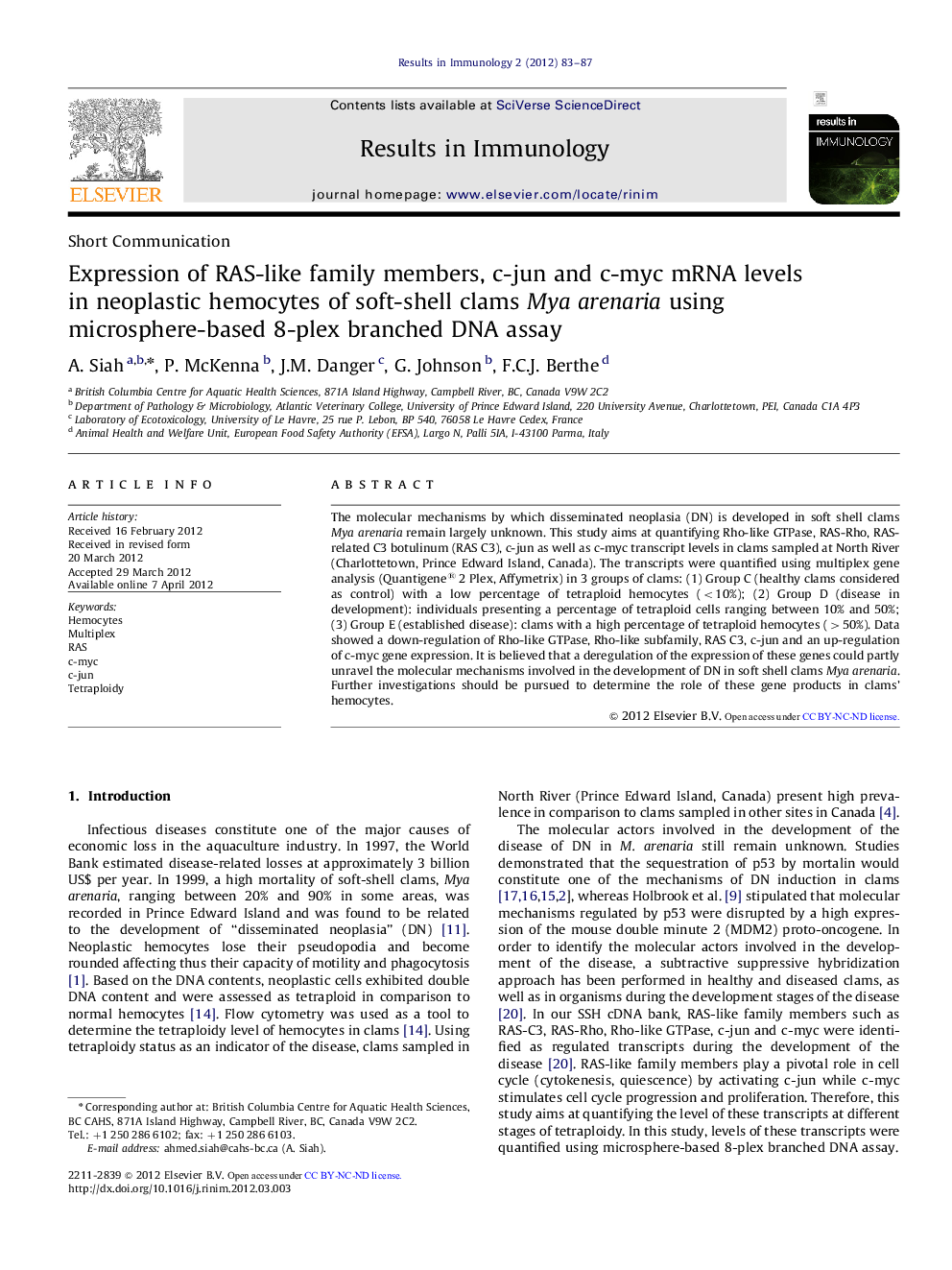| Article ID | Journal | Published Year | Pages | File Type |
|---|---|---|---|---|
| 2202428 | Results in Immunology | 2012 | 5 Pages |
The molecular mechanisms by which disseminated neoplasia (DN) is developed in soft shell clams Mya arenaria remain largely unknown. This study aims at quantifying Rho-like GTPase, RAS-Rho, RAS-related C3 botulinum (RAS C3), c-jun as well as c-myc transcript levels in clams sampled at North River (Charlottetown, Prince Edward Island, Canada). The transcripts were quantified using multiplex gene analysis (Quantigene® 2 Plex, Affymetrix) in 3 groups of clams: (1) Group C (healthy clams considered as control) with a low percentage of tetraploid hemocytes (<10%); (2) Group D (disease in development): individuals presenting a percentage of tetraploid cells ranging between 10% and 50%; (3) Group E (established disease): clams with a high percentage of tetraploid hemocytes (>50%). Data showed a down-regulation of Rho-like GTPase, Rho-like subfamily, RAS C3, c-jun and an up-regulation of c-myc gene expression. It is believed that a deregulation of the expression of these genes could partly unravel the molecular mechanisms involved in the development of DN in soft shell clams Mya arenaria. Further investigations should be pursued to determine the role of these gene products in clams' hemocytes.
